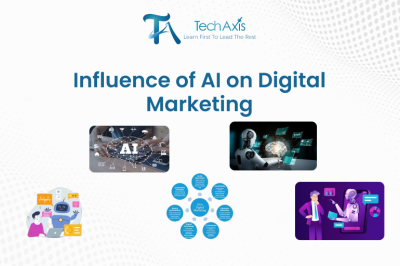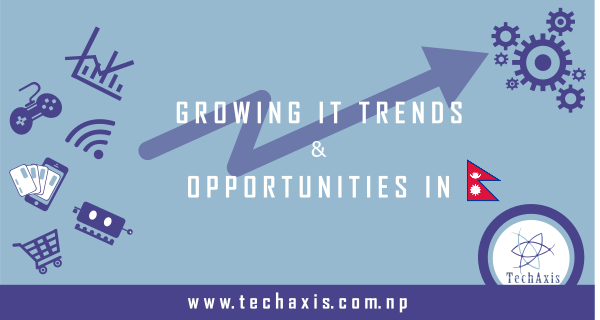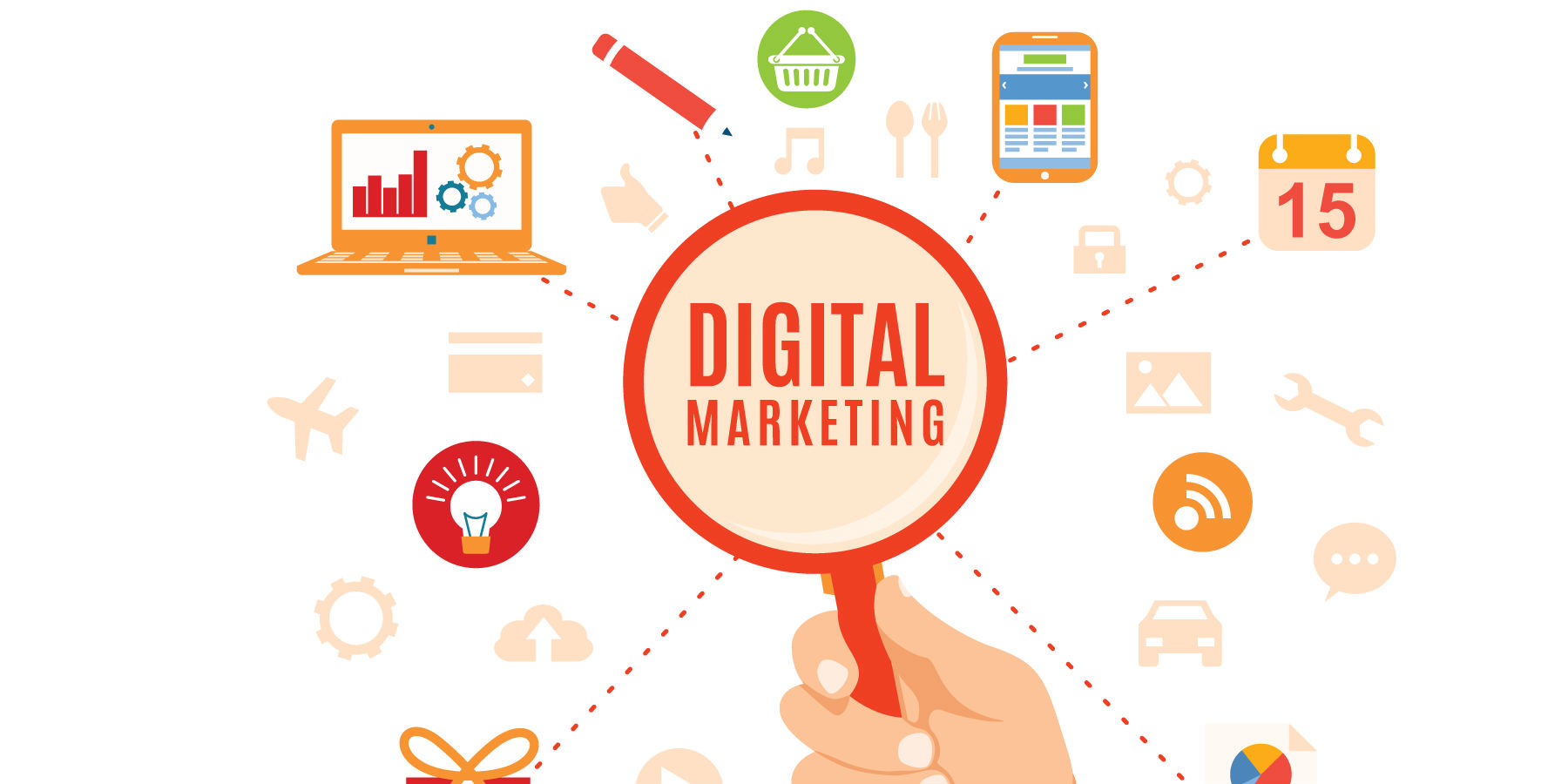
Influence of AI on Digital Marketing
AI has emerged and grown fast to become an essential feature in many sectors such as digital marketing. With the growth of AI technologies, every aspect of the business is being transformed including marketing strategies and customer relations as well as data analysis. Moving from basic uses of data forecasting to content targeting, AI helps marketers make better decisions and turn campaigns into unique customer experiences. Using AI in Digital Marketing is not a new concept but it is a revolution that is taking place in the industry. This change allows companies to remain relevant in today’s society which is shifting to a digital format that may have different consumer habits. Here in this context, it can also be referred to that despite having a long history; the impact and role of AI in Digital Marketing is manifold and profound of its impact for redefining marketers’ way of reaching audiences, attaining conversions and evaluating success. Marketing has been one of the fields that has benefited from AI implementation, where in addition to improving everyday operations, new possibilities for development appear. Thus, it can be stated that AI will help Digital Marketers unlock a wide range of careers and scope in Digital marketing increasing the effectiveness of work by predicting trends, adapting interactions, etc. This introduction will therefore discuss How AI is reshaping the Digital Marketing landscape and the opportunities that the technology presents.
AI in Digital Marketing: Key Applications
AI is proving transformative in Digital Marketing since it brings new ways of maximizing personalization, automating processes, and improving campaigns and the creative content created. Here’s how AI is transforming these key areas:
- Personalization: Among the many areas, that is where artificial intelligence can be most useful in digital marketing: personalization. Specifically, through working with large amounts of information, the application of AI allows particular customers to be offered materials that meet their interests. AI algorithms monitor the users’ activity, queries, and purchases to generate relevant suggestions and advertising. Such a level of targeting makes customers engaged, happy and loyal since they are likely to respond to content which has been personalized to suit their needs and wants.
- Automation: Digital marketing also benefits from AI automation as it eliminates most monotonous tasks in different companies' operational processes. Some of the most common examples are the integration of chatbots for customer service and lead generation. These bots have capabilities of interacting with the customers in different aspects ranging from queries on products to being able to assist the users in making their purchases. It also enables businesses to offer round-the-clock support, decrease the time taken to respond to customers and liberate manpower for other tasks. It also includes automation of social media, where the AI tools can post, analyze activity, and suggest content. This cuts down on the time that is spent updating a page while pulling up data on the best times to post this activity to achieve maximum results. Automated systems can also monitor the performance indicators and respond immediately to them leaving marketers with more time on their hands to deal with the overall techniques and creative input.
- Improving Marketing Communications for Improved Marketing Outputs: Marketing is an area of organizational operation where AI is highly strategic because of the role it assumes in determining the measures that will bring out the most effective communication points for marketing campaigns. AI implementation can help to make quick conclusions about which elements are effective for a campaign, it can be headlines, images or buttons, with the help of A/B and Multivariate testing. This is a powerful tool for marketers and enables them to optimize their efforts and increase the conversion ratio while making fewer or even no assumptions.
- Content Creation: AI is progressing in content generation as well making it easier for marketers to create content that is memorable and appealing at a large scale. Writing applications enabled by artificial intelligence are capable of providing texts of high quality depending on the input that is given, for instance, product descriptions, blog articles or social media posts. These tools can be time-saving and can help avoid inconsistencies in brand messages while freeing up marketers’ time to focus on other more creative content generation tasks.
The Benefits of AI in Digital Marketing
AI in Digital Marketing is an advantage beyond measure as it brings about a major shift in the way organizations function to deliver value to their consumers. Here are some of the key advantages:
- Increased Efficiency: Elimination of instances where large amounts of effort are required by hand. There is improvement in the overall organization of marketing activities through the use of tools and technologies based on artificial intelligence to minimize the work done manually. Marketing operations like scheduling posts on social media platforms, handling email marketing campaigns and handling and responding to customers’ queries through chatbots are some of the repetitive tasks that, when performed automatically, free the marketing teams to engage in more complex activities. Time is also gained and more importantly probability of human error is eliminated as the tasks are performed uniformly and effectively. Due to the features of scalability that characterize AI, marketers can deliver campaigns more efficiently and with higher accuracy.
- Improved Customer Experience: Creating that Personal and Relevant Experience Marketing is one of the most significant areas that can benefit from the use of AI; one of which is the personalization of customer experience. AI allows for the determination of the behavior, demographics and interactions in customers hence providing the customer with personalized content and suggestions. Such a level of personalization enables the trading firms to capture their clientele by delivering the important products, services and even the messages which every user wants to capture. Customization is always good for consumers since they will always feel satisfied and work more with brands that understand their situation.
- Enhanced Decision-Making: Using Data Analytics, AI makes it easy for marketers to be smarter by providing them with equal intelligence to work with. One of the major benefits of various subfields of AI is that it can recognize patterns and predict the likely results which might not be tangible at first sight. This increases the efficacy of the strategies being used by marketers, resource management as well as the efficiency of campaigns that are being run by marketers. Since AI is data-driven in its approach to the problem it solves, companies can factor in analysis that can help them improve their marketing further.
- Competitive Advantage: In the current world where digitization is inevitable, AI works in favour of the business since it helps in the analysis of the trends and conditions in the market. An application of AI in the commercial firm enables the corporation to adapt faster to the changes in consumer behaviour and improve their marketing methods as well as experiment with new approaches. When utilizing AI solutions it is possible to counter competition, leverage new opportunities that have appeared in the market, and ensure a company’s position in the market is outstanding.
Future Trends of AI in Digital Marketing and Opportunities
The developments in AI in Digital Marketing reveal many new current and future trends in Digital Marketing.
- Self-supervised AI is leading the way in a class of widely related AI systems that create new content and experiences from scratch. This technology can produce text, images and videos of high quality, so it may enable marketers to produce materials of high quality, customized for their target public. There also exists the amazing potential of creating new and ‘live’ content which in turn has multiple prospects of commendable narrative and customer engagement.
- Cognitive/AI Ethics is emerging as even companies look for ways of creating proper AI systems that would respect morality and ethical practices. The main goal is to build AI systems that are open to as many people as possible and free from such issues as prejudice and violation of personal rights.
- Marketing platforms being the set of AI marketing tools are beginning to adopt Artificial Intelligence at the center of it as a comprehensive solution for end-to-end marketing automation. It allows different marketing functions to be coordinated and integrated such as the tasks of customer segmentation, campaign management, and performance measurement, and thus improve the ordinal coupling of work.
- However, the human factor has not lost its significance even with these developments. Marketing creativity and rational planning cannot be fully delegated to machines or other forms of artificial intelligence since they enhance, rather than substitute human marketers’ skills and perspectives. Every emerging opportunity will require a blend of artificial intelligence and human talent to unlock it.
Conclusion
The Role of AI in Digital Marketing is revolutionary implying deep-seated changes that enrich the approaches to making them more effective, individualized and efficient. Over time, Artificial Intelligence has proved to be a key technological pillar that is transforming how companies interact with their customers, analyse advertisement and marketing campaigns, and develop content. For businesses to survive the global trends that have risen with the integration of AI, it becomes necessary for firms to adopt the AI system as the modern marketing environment emerges as a very important factor in marketing.
However, the integration of artificial intelligence into different aspects of our lives brings along with it ethical considerations. Organizations should ensure seven principles of AI use that is, data protection, non-escalation of bias, and human intervention. Ethical considerations are also important for developing confidence with the consumers and hence enhancing the reputation of the brands. If AI’s opportunity is tempered with issues of morality businesses can incorporate the advantages of up-to-par AI while avoiding the drawbacks.
Firstly, this outline can help one lay a good foundation for pursuits to estimate the influence of AI in digital marketing. Omissions are often made even in very precise articles and these may include omission of specific instances, case briefs and even erections all in a bid to enhance the understanding of the concept of AI. Discussions of possible difficulties and ethical questions will also enhance the analysis and make the discussion of AI‘s place in building the future of digital marketing broader and deeper. If you want to stay ahead and get up-to-date with all the developments of AI and how AI will influence Digital Marketing then you can join our comprehensive Digital Marketing Training Course in Nepal to understand more about these AI Tools and leverage them for maximum potential to grow your skills and business.











